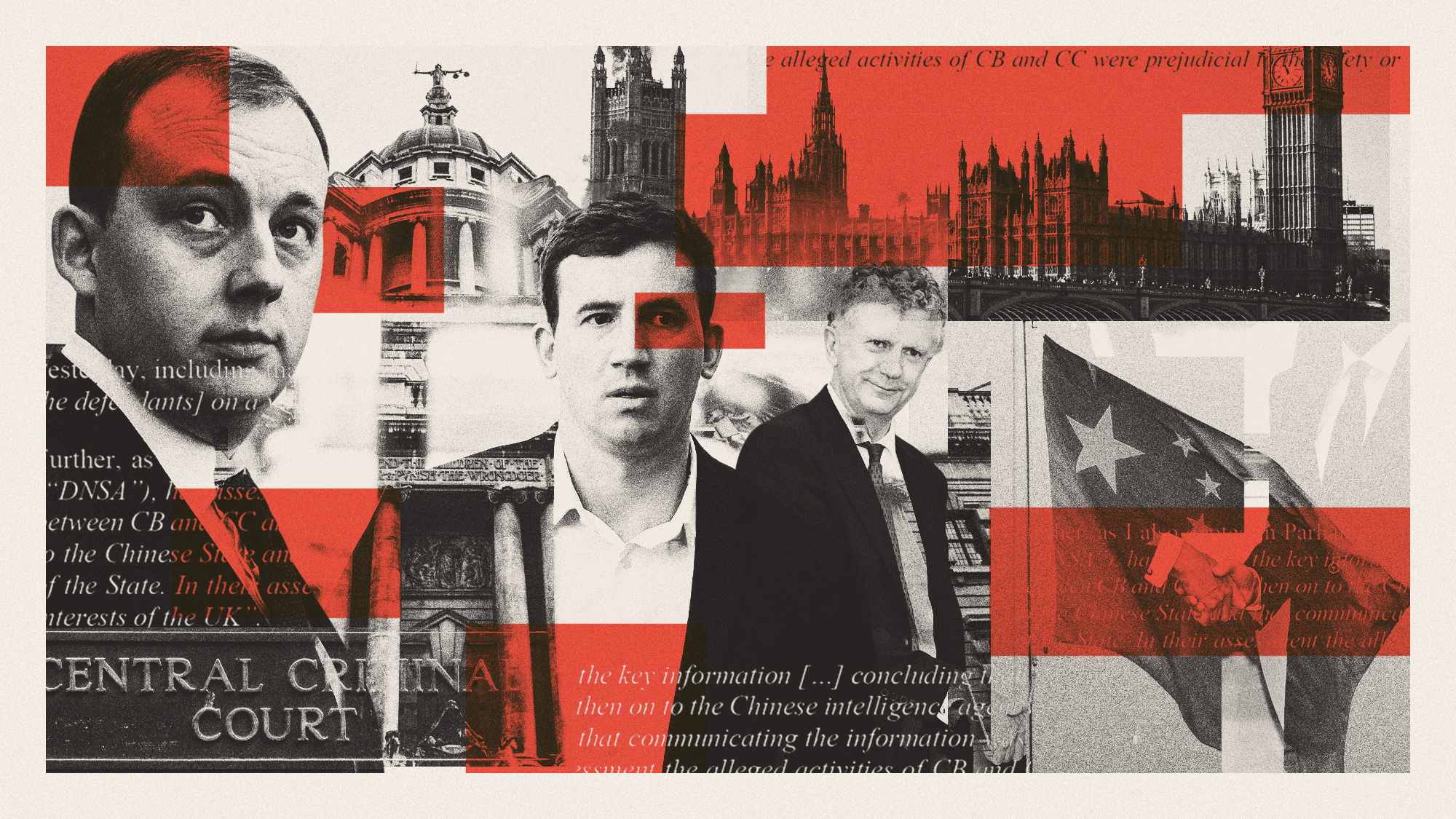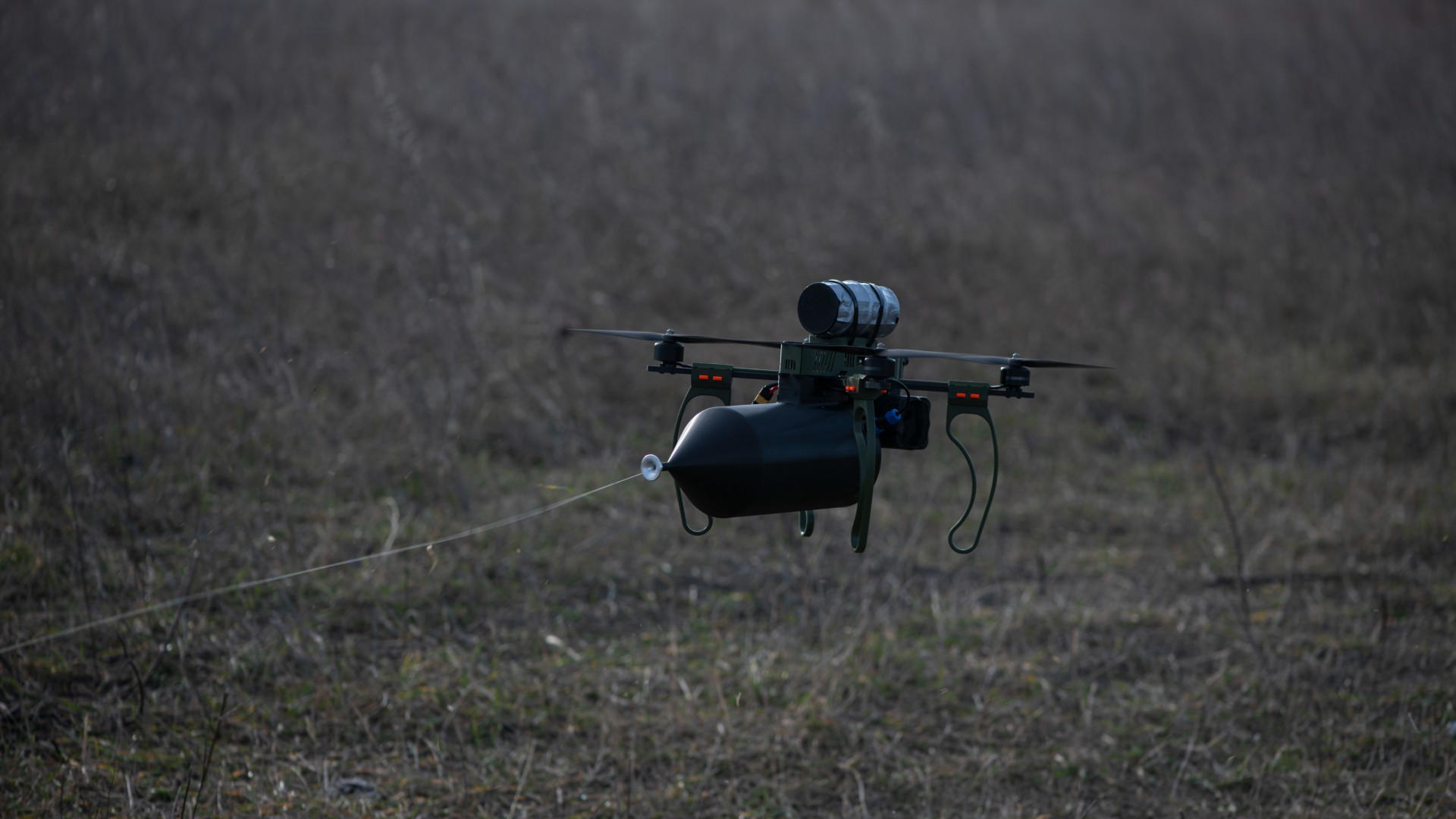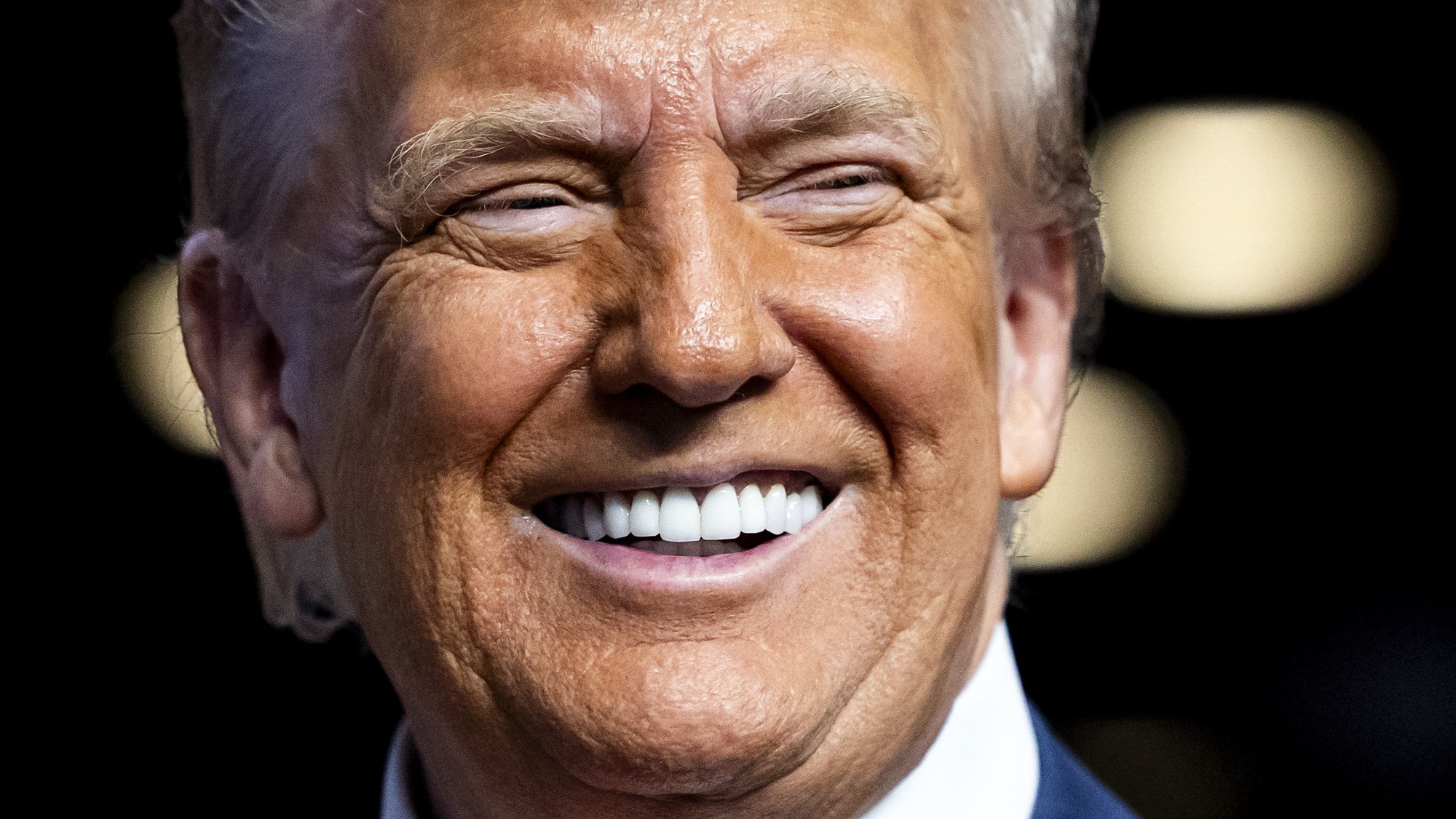Will the UK get involved in the Israel-Iran conflict?
Keir Starmer is 'walking a tightrope' in helping Israel limit Tehran's nuclear capabilities without being seen to do so

A free daily email with the biggest news stories of the day – and the best features from TheWeek.com
You are now subscribed
Your newsletter sign-up was successful
As he headed off for this week's G7 summit in Canada, where rapidly growing tensions in the Middle East look set to dominate the agenda, Keir Starmer continued to call for de-escalation between Israel and Iran.
Tit-for-tat strikes are now in their fourth day, with little sign of either side being willing to back down. So "the risk of this operation unleashing an all-out regional war – and one that could even drag in Britain – looks higher than ever", said The Telegraph.
The PM has refused to rule out defending Israel from Iranian strikes, despite a warning from Tehran that doing so could lead to British bases in the region being targeted. A No. 10 spokesperson did, however, say that the UK would not support efforts aimed at regime change in Iran.
The Week
Escape your echo chamber. Get the facts behind the news, plus analysis from multiple perspectives.

Sign up for The Week's Free Newsletters
From our morning news briefing to a weekly Good News Newsletter, get the best of The Week delivered directly to your inbox.
From our morning news briefing to a weekly Good News Newsletter, get the best of The Week delivered directly to your inbox.
What did the commentators say?
The difficulty for the UK is that Israel is "mostly a strategic liability", said The Independent, "but it's also a very close ally in stopping Iran from developing a nuclear weapon".
"Helping Israel to stop the erratic and malevolent Iranian regime from making an atomic bomb is smart." But "being seen to do so, and protecting Israel against the consequences of its endeavours, is not."
The UK government is "trying to walk a tightrope" in its relations with Israel, said Bloomberg. While keen to "remain aligned with the US on security matters and uphold the UK's backing of Israel against Iranian threats", Starmer also faces "internal pressure" from his own party to take a tougher stance against Israel's actions in Gaza.
Relations between the two countries reached a new low last week after Britain sanctioned two hardline Israeli government ministers for repeatedly "inciting violence against Palestinian communities".
A free daily email with the biggest news stories of the day – and the best features from TheWeek.com
The Foreign Office on Sunday advised Britons against travelling to Israel or the occupied Palestinian territories. It was "one of the UK government's most severe warnings in recent memory", said The Guardian, "reflecting the growing threat to foreign nationals".
At the same time, the UK has also sent additional RAF Typhoon jets and refuelling aircraft to the region in what Chancellor Rachel Reeves called a "precautionary" move. "It does not mean that we are at war," she told Sky News, though she did say the government would act to protect British assets and "potentially" support its allies.
While the UK is "not currently planning to take part in defending Israel from Iranian counter-attacks", said The Telegraph, "Iran's allusion to Western 'supporters' suggests that British military bases in the region could also be considered legitimate targets by Tehran as it draws up plans for retaliation".
What next?
There is still a role Britain can play in the conflict "without risking the reputational damage" of direct military assistance to Israel, said The Independent.
Chief among these would be assisting in the defence of US military assets close to Iran in the Persian Gulf, Kuwait, Bahrain, Qatar, the UAE and Oman, which are vulnerable to attack. In the event of this, UK intervention could be justified under Article 5 of the Nato treaty.
This would also set a precedent for other conflict hotspots, most notably in Ukraine, while avoiding the "geopolitical dirty linen".
But even if the UK does manage to stay out of direct involvement in the Israel-Iran conflict, British citizens could still feel the impact. There are fears that higher oil prices could lead to inflation and increased energy costs – as happened following Russia's invasion of Ukraine in 2022. Reeves told the BBC's Laura Kuenssberg that the government will do "everything in its power" to protect people in the UK from knock-on economic effects of a regional conflict.
Elliott Goat is a freelance writer at The Week Digital. A winner of The Independent's Wyn Harness Award, he has been a journalist for over a decade with a focus on human rights, disinformation and elections. He is co-founder and director of Brussels-based investigative NGO Unhack Democracy, which works to support electoral integrity across Europe. A Winston Churchill Memorial Trust Fellow focusing on unions and the Future of Work, Elliott is a founding member of the RSA's Good Work Guild and a contributor to the International State Crime Initiative, an interdisciplinary forum for research, reportage and training on state violence and corruption.
-
 Political cartoons for February 15
Political cartoons for February 15Cartoons Sunday's political cartoons include political ventriloquism, Europe in the middle, and more
-
 The broken water companies failing England and Wales
The broken water companies failing England and WalesExplainer With rising bills, deteriorating river health and a lack of investment, regulators face an uphill battle to stabilise the industry
-
 A thrilling foodie city in northern Japan
A thrilling foodie city in northern JapanThe Week Recommends The food scene here is ‘unspoilt’ and ‘fun’
-
 What is ‘Arctic Sentry’ and will it deter Russia and China?
What is ‘Arctic Sentry’ and will it deter Russia and China?Today’s Big Question Nato considers joint operation and intelligence sharing in Arctic region, in face of Trump’s threats to seize Greenland for ‘protection’
-
 Is the Chinese embassy a national security risk?
Is the Chinese embassy a national security risk?Today’s Big Question Keir Starmer set to approve London super-complex, despite objections from MPs and security experts
-
 What would a UK deployment to Ukraine look like?
What would a UK deployment to Ukraine look like?Today's Big Question Security agreement commits British and French forces in event of ceasefire
-
 Would Europe defend Greenland from US aggression?
Would Europe defend Greenland from US aggression?Today’s Big Question ‘Mildness’ of EU pushback against Trump provocation ‘illustrates the bind Europe finds itself in’
-
 Vladimir Putin’s ‘nuclear tsunami’ missile
Vladimir Putin’s ‘nuclear tsunami’ missileThe Explainer Russian president has boasted that there is no way to intercept the new weapon
-
 Why did the China spying case collapse?
Why did the China spying case collapse?Today’s Big Question Unwillingness to call China an ‘enemy’ apparently scuppered espionage trial
-
 How drone warfare works
How drone warfare worksThe Explainer From Ukraine to Iran, it has become clear that unmanned aircraft are rapidly revolutionising modern warfare
-
 How long can Nato keep Donald Trump happy?
How long can Nato keep Donald Trump happy?Today's Big Question Military alliance pulls out all the stops to woo US president on his peacemaker victory lap